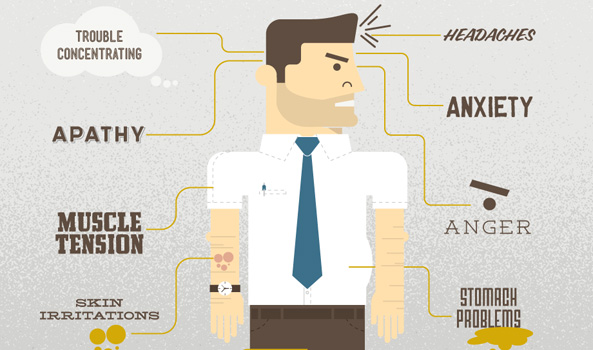Editor’s Note: This website is not designed to, and should not be construed to, provide medical advice, professional diagnosis, opinion or treatment to you or any other individual, and is not intended as a substitute for medical or professional care and treatment. For serious.
~
Naturally Reduce Stress with these Simple Strategies
“If you really knew what was happening to you when you are stressed, you would freak out,” I once told an audience. “It’s not pretty.”
Unfortunately, chronic stress has become the societal norm, where faster seems better and we pack more obligations into an ever-growing schedule.
Among its havoc, one meta-analysis involving 300 studies found chronic stress could damage our immunity. Another found stressed-out women had significantly higher waist circumference compared to non-stressed women.
Experts have long connected stress with blood sugar and belly fat. Chronic stress raises insulin, driving relentless metabolic dysfunction that becomes weight gain, insulin resistance, and ultimately, diabetes.
Other hormones soon follow insulin’s imbalanced lead. Our adrenal glands release hormones like adrenaline and cortisol that flood our system, raising our heart rate, spiking our blood pressure, making our blood more likely to clot, damaging our brain’s memory center, increasing belly fat storage and generally wreaking havoc.
Managing Stress Starts with our Diet
Rather than reduce it to calories or other numbers, we must look at food as information that controls our gene expression, hormones and metabolism.
What we eat can powerfully impact stress levels. Sugary, processed foods as well as excessive caffeine and alcohol, create a cascade effect of hormonal imbalances, which often backfire as chronic stress.
When we eat whole, real foods, we restore hormonal balance. Insulin, cortisol and other hormones stabilize. We maintain an even-keeled mindset throughout the day even when things get hectic.
Rethinking Stress
“We all have stress and strain within our lives,” writes Jennifer S. White. “All of us; it’s how we choose to deal with them that sets us apart.”
Stress is ultimately a thought or perception of a threat. In other words, we have complete control over stress, because it’s not something that happens to us but something that happens in us.
Here’s where it becomes interesting. Stressors can be real or perceived. We might imagine our spouse is angry with us. Whether or not they are, we raise stress levels. Real or imagined, when we perceive something as stressful, it creates the same response in the body.
“We can’t eliminate stress, but we can learn to weather the storms and curveballs life throws our way with grace,” writes JJ Virgin.
These 10 strategies can help us develop resiliency and reduce the impact of stress:
- Address the underlying causes of stress. Find the biological causes of problems with the mind including mercury toxicity, magnesium deficiencies, vitamin B12 deficiencies and gluten allergies. Changing our body can change our mind.
- Actively relax. Humans remain primed to always do. Even when we’re not working, our mind is on work. Active relaxation might mean deep breathing or a simple leisurely walk: something that requires us to remain mindful but promotes calmness and relieves stress.
- Learn new skills. Yoga, biofeedback and progressive muscle relaxation can reduce the impact of stress and allow us to feel alive.
- Exercise is a powerful, well-studied way to burn off stress chemicals and heal the mind. Studies show exercise works better than or equal to pharmaceutical drugs for treating depression.
- Utilize herbs. Adaptogenic herbs help us adapt and balance our response to stress. Good ones include ginseng, Rhodiola rosea, Siberian ginseng, cordyceps and ashwagandha.
- Change our beliefs. We can challenge our beliefs, attitudes and responses to common situations and reframe our point of view to reduce stress.
- Find a community. Consciously building our network of friends, family and community can improve stress levels and long-term health.
- Breathe. Most of us hold our breath often or breathe shallow, anxious breaths. Deep, slow, full breaths have a profound affect on resetting the stress response, because the relaxation nerve (or vagus nerve) goes through our diaphragm and is activated with every deep breath. We can change our stress response with even five deep breaths.
- Meditate. “Probably the most obvious way to de-stress your mind is meditation,” writes Lindsey Block.
- Sleep. Lack of sleep increases stress hormones. Making sleep a top priority will repay dividends to reduce stress levels and improve our health.
~
What one technique or strategy would you add to this list to manage stress levels? Share yours below or on my Facebook fan page.
~
References
Macedo DM, Diez-Garcia RW, Sweet craving and ghrelin and leptin levels in women during stress. Appetite 2014 Sep;80:264-70.
Marin H, Menza MA. Specific Treatment of Residual Fatigue in Depressed Patients. Psychiatry (Edgmont) 2004;1(2):12-18.
Segerstrom SC, Miller GE. Psychological Stress and the Human Immune System: A Meta-Analytic Study of 30 Years of Inquiry. Psychological bulletin 2004;130(4):601-630. doi:10.1037/0033-2909.130.4.601.
~
~
Author: Mark Hyman
Editor: Rachel Nussbaum
Photo: Better Works, bestpsychologydegrees.org










Read 1 comment and reply